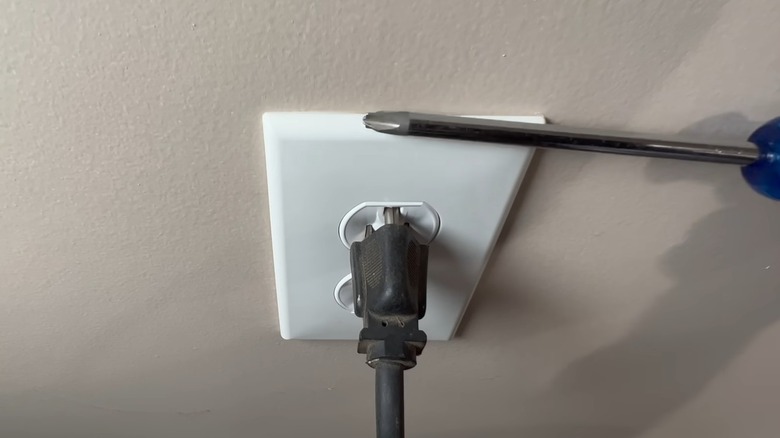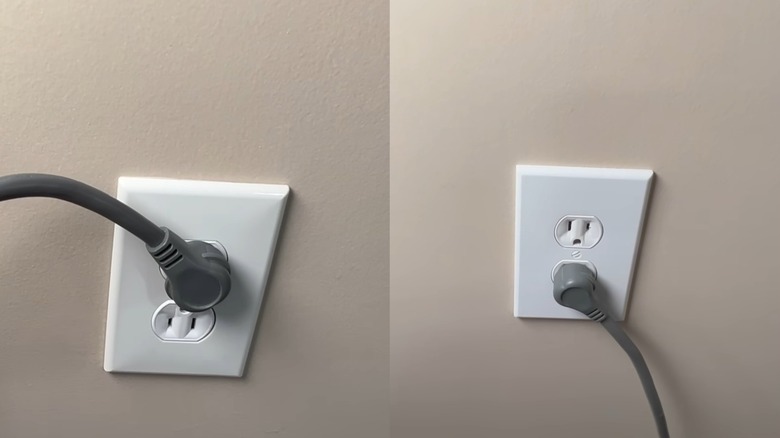Why Are Some Electrical Outlets Installed Upside Down? Here's What Electricians Say
The first U.S. detachable electric plug was patented by Harvey Hubbell II in 1904 and was among many of Hubbell's contributions to the field. But it would take a few decades before a standardized design would become widespread, eventually creating the three-pronged socket familiar today. However, you may have noticed that modern electrical outlets sometimes appear to be upside down. Is this a mistake? According to master electrician Rex Cauldwell (via Fine Homebuilding), "There is no official right or wrong way to orient a receptacle — the National Electrical Code doesn't specify." Even though both ways are correct, there are some instances where one makes sense over the other.
For most powered devices where the cord comes straight out of the back of the plug, you might want an outlet with the ground situated on top (flipped upside-down). If a plug has loosened to the point where the prongs are visible, a ground-up installation ensures that any contact from above will be with the neutral grounding pin. If an object contacts the hot and neutral blades, this could cause the circuit breaker to trip or fail, and you'd be surprised how much it costs to install a new circuit breaker.
Another handy use for the inverted outlet is to indicate that it's controlled by a wall switch. For example, if you have several outlets in a room and only one is flipped upside down, it's likely going to be the one you'll want to plug a lamp or floor light into.
Why use the ground down receptacle orientation?
Many large appliances come equipped with an immediate-turn or 90-degree plug, which is larger and has the power cord coming out of the bottom. In this instance, if you were to try to insert an immediate-turn plug into an upside-down outlet (ground slot on the top), the weight of its cord could potentially pull it out of the receptacle. In these instances, you would want to avoid having the cord loop over the top of the plug. This is especially important with washing machines and major kitchen appliances like refrigerators, which may have limited access to the outlet. Typically, they're also devices you should never plug into an extension cord.
Other electricians have stated they prefer ground down outlets because many plugs in the home don't necessarily come equipped with the third ground prong, negating the protective benefits of the inverted outlet. With these plugs, an object will contact the hot and neutral blades regardless of the outlet's orientation.

